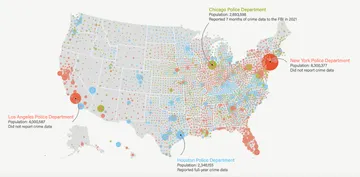President-elect Donald Trump’s reported choice for Attorney General Sen. Jeff Sessions has a long public record for supporters and detractors to cull through between now and his confirmation hearing before the Senate Judiciary Committee early next year. A former Alabama U.S. attorney and state attorney general who was elected to the Senate in 1996, Sessions has a documented trail of policy positions on almost every area of criminal justice he’ll oversee at the Justice Department.
And virtually everything we know suggests the next Justice Department will be inclined and positioned to reverse what the last one accomplished.
For example, we know that he is an old-fashioned drug warrior who is almost certain to be more hostile to sentencing reform than his immediate predecessors. Even though he was a proponent of a law to ease sentencing disparities between crack and cocaine offenders, he was among a handful of senators this year who helped stop bipartisan sentencing reform legislation from coming to a vote on Capitol Hill. He has repeatedly insisted, despite statistics to the contrary, that rising crime rates are tied to lower sentencing for drug offenders.
He also consistently has criticized the Obama administration for what he considered its weak positions on drug law enforcement. Sessions has made it clear that he opposes legalizing marijuana, which the federal government still classifies as a schedule 1 drug. One question for the confirmation battle ahead: How aggressively will he assert federal authority over those states that have embraced marijuana reform?
“Good people don’t smoke marijuana,” Sessions has said, although it’s unclear how his view would square with Trump, who has expressed favor for medical marijuana but not necessarily recreational pot.
It’s also clear that Sessions will reverse or sharply limit the Obama administration’s initiatives on police reform and its efforts to bridge the racial gulf that often exists between police and communities of color. He blamed the outgoing administration for policies that led to less aggressive policing that he claimed led to higher crime rates; policies, he said, that were tantamount to signing “death warrants” for thousands of future crime victims. Along these lines, last year he introduced federal legislation titled the “Thin Blue Line Act” designed to increase federal penalties for those who harmed police or other first responders.
As Attorney General, Sessions would play a key role in implementing whatever deportations the Trump administration orders (and the courts allow).
Sessions agrees with Trump’s views on illegal immigration — including deporting millions of people currently living in the country — and in the Senate has consistently voted to restrict legal immigration. If there are going to be any defectors from the GOP ranks during the confirmation process — say, Sen. Susan Collins of Maine, for example — they will likely come on this issue, where Trump and Sessions appear positioned to the right of their own party.
Last December, months before he endorsed Donald Trump, Sessions voted against a resolution introduced by Sen. Patrick Leahy (D-Vt.) that said the U.S. should not bar entry into this country based on religion. Sessions feared that the resolution would make immigration a global “human right.”
Sessions also is a strong supporter of capital punishment, a view he shares with the man who just nominated him. We also know that Sessions is an ardent supporter of an aggressive approach to civil forfeiture, which puts him at odds with many Republicans and Democrats who have supported forfeiture reform at both a federal and state level. And when it comes to nominating public defenders to be judges he has said that they have a troubling “agenda” that they would bring to the bench.
